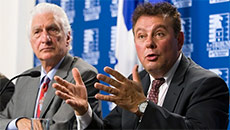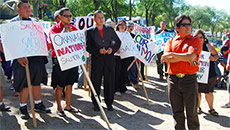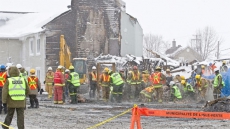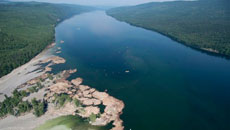In the aftermath of the First World War, most of the major combatants turned their minds to producing histories of the terrible conflict.
In Canada, the assignment eventually fell to a Scottish-born former artilleryman and staff officer with the unlikely moniker of Archer Fortescue Duguid.
Duguid was born in Aberdeenshire in 1887 and moved to Canada in 1906. Before the war he studied civil engineering at McGill. When the war broke out, he was commissioned a lieutenant in the artillery. During the war, he was awarded the Distinguished Service Order and finished the war as a staff officer.
In 1921, at the age of 34, he was promoted to colonel, appointed director of the arm's historical section and began the monumental task of sorting through the voluminous records accumulated during the war. By 1929, he and his staff had sorted and indexed 135 tons of material.
The French official history of the First World War runs to 106 volumes, the British history has 40 volumes and even Australia produced a 12-volume history. Duguid planned eight volumes, but even that modest goal was never reached.
He published volume one in 1938, essentially covering the first year of the war. There was a separate volume of documents. And there, the whole effort stalled.
Tim Cook, a historian at the Canadian War Museum and author of several well-received books on the First World War, also wrote "Clio's Warriors," a study of Canadian historians and their writing on the world wars. Cook writes that the publication of Duguid's lone 1938 volume at a time when other countries were producing multi-volume histories "was obviously an embarrassment to the government and a source of consternation to veterans."
Historian Mark Humphries, who holds the Dunkley Chair in War and the Canadian Experience at Wilfrid Laurier University, says the book was a good history.
"It's thorough and it's detailed and certainly if you want to look at what happened in the spring of 1915, that's the go-to place."
However, Humphries said, Duguid was pulled in too many directions.
"The problem for Duguid was the type of detailed, painstaking research that required and the level of detail and the level of analysis that would be necessary, created a couple of big problems," he said.
"First of all he had to deal with the fact that sometime the conclusions that he was arriving at were going to be politically unpalatable.
"The second thing was the Department of National Defence, the army directorate of history at that time, was being asked to answer a whole other range of questions that would be constantly posed by reporters, by politicians, by other authors who were writing histories, by the department itself, so he was constantly being pulled off the main task to go and do these kind of little side stories."
Duguid was also torn between his role as a historian and his assumed role as guardian of the legacy of the Canadian Corps and the memory of its dead.
He had other tasks as well. He was deeply involved in the creation of the memorial chapel in the Peace Tower of the Parliament Buildings. He wrote inscriptions and worked with the sculptors who decorated the chapel.
A year after Duguid's first volume was published, the Second World War broke out and the whole project was put on hold. Duguid was assigned to documenting the new war effort on the home from and directing the country's war artists.
After the was ended, work resumed on a second volume of the series, but it wasn't finished by 1947, when Duguid retired. A few years later, with historians deeply engrossed in producing a history of the Second World War, Defence Minister Brooke Claxton ordered the First World War project abandoned.
"Nobody wants it," he is reported to have said.
In a subsequent article, Duguid lamented the death of a project which had dominated 25 years of his life:
"My skilled staff was scattered and the mass of material compiled and partly printed for the remaining volumes was nailed up in packing cases."
But Claxton was wrong — there was a demand. In 1956, Col. G.W.L. Nicholson, who had written a volume of the Second World War history, was assigned the First World War task. six years later, he published a 621-page, single-volume history of the earlier war. It relied heavily on Duguid's research.
In the end, historians reserve some sympathy for Duguid, who died in 1976 at the age of 88.
"One cannot but marvel at the breadth and depth of Duguid's research and the evidence that now lies in records he compiled, which eventually formed a component of the official defence archives," Cook wrote in "Clio's Warriors."
"While Duguid may have failed to produce an historical series, he did not fail as guardian of the CEF's memory and reputation. The role of the CEF official historian was much more than simply writing a history, even if he has been remembered only for that."
Humphries said Duguid was never trained as a historian, but was sent to do a historian's job.
"I think this is why most historians tend to be fairly sympathetic towards him."
The politics of the immediate post-war period and the desire to protect Canada's wartime reputation helped defeat Duguid.
"Duguid is cast as the guy who never really completed this task, but in many ways the job handed to him was impossible."
Nicholson, who wrote the 1962 history, felt the same way.
"The work was conceived on too grand a scale to be accomplished by one man lacking the assistance of a staff of trained historians," Nicholson wrote in a 1976 obituary for Duguid.





